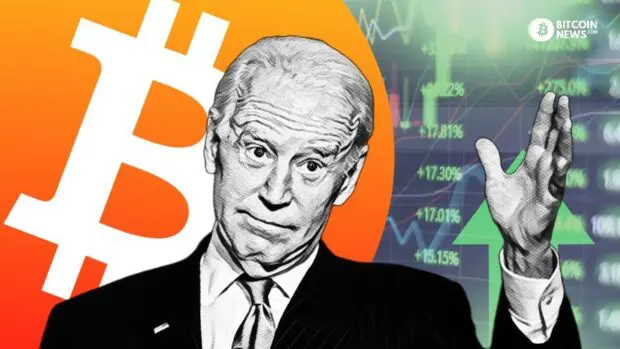The US government holds over 205,000 bitcoin, according to reports. This makes the U.S. government a bigger bitcoin holder than MicroStrategy and Tesla, with over 1% of the total current bitcoin circulating supply in its coffers. At current market prices it is worth about $ 5.7 billion.

US Government Holds More Than You Think
Data shows that MicroStrategy now holds 132,500 BTC, and Tesla has 10,752 BTC. These are giant bitcoin holder companies, but their respective stashes are dwarfed by the U.S. government.
Authorities have accumulated this stash through multiple asset seizures over the years. Despite having sent 9,860 BTC to Coinbase in March 2023, they are still the biggest known bitcoin holder.
US Government Asset Seizures
The first act of seizure was when the U.S. government confiscated 69,396 BTC from someone they later called “Individual X.” Blockchain analysis shows that his address “1HQ3” could be linked to Silk Road marketplace activities.
The second instance of seizure was a sum total of 94,636 BTC, which was related to the Bitfinex hack incident in 2016. During the investigations, Ilya Lichtenstein and his wife were arrested, and charged with laundering 119,754 BTC in over 2,000 transactions over the span of five years.
This event is what the U.S. government calls the “largest cryptocurrency seizure to date.”
Another case that lead to seizure of over 50,000 bitcoin was also in connection to the Silk Road and involved a James Zhong, who pleaded guilty to unlawfully obtaining that amount.
Related reading : U.S. Government Moves $300 Million Worth of Bitcoin Related to Silk Road Seizure
The seizure happened in November 2021, when the Department of Justice raided Zhong’s residence in Gainesville, Georgia, resulting in seizure of more than 51,326 BTC.
Like any other form of money, bitcoin can be used by bad actors as a tool for money laundering and terrorist financing. The fact that the U.S. government has this vast amount of bitcoin proves two interesting points.
First, it shows that the U.S. government is fighting against what it considers to be unlawful activities in its jurisdictions and considers bitcoin a form of currency. Activities wouldn’t get opposed and bitcoin wouldn’t be confiscated if the Department of Justice didn’t believe bitcoin had value.
The second interesting point is that the U.S. government is still holding on to their confiscated bitcoin stash, and has not liquidated it as soon as they could. It raises the question: “Is the US government a bitcoin speculator?”










